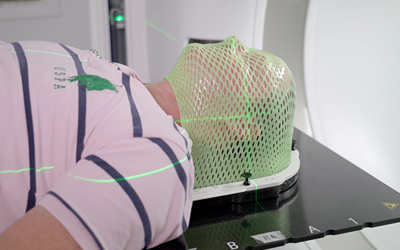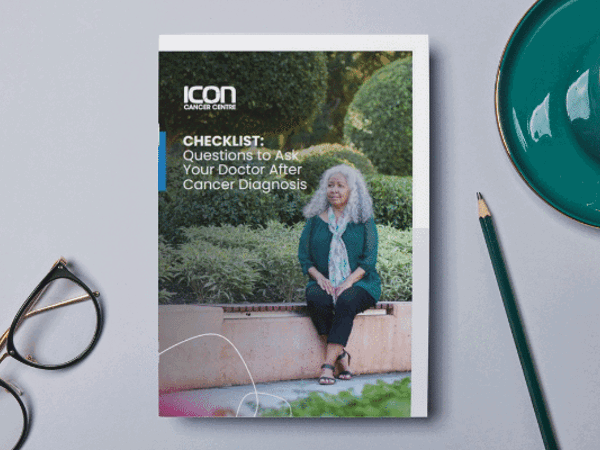
Tips for getting through treatment with a radiation therapy mask
Allied health services play a significant role in getting you through treatment and meeting your recovery goals.
Specialised health services, such as dietitians or physiotherapists, are often referred to as allied health, and can help you and your family manage treatment side effects.
Maintaining good nutrition throughout treatment can help manage symptoms such as nausea or weight loss, and provide you with enough energy to get through each day. Dietitians can assist in ensuring your nutritional needs are met whilst undergoing treatment.
You may consider the help of a dietitian for:
Weight loss
Loss of appetite or change in tastes
Some cancer treatments can affect your ability to chew, swallow, and speak. A speech pathologist provides exercises and techniques to manage oral symptoms.
You may consider the help of a speech pathologist if you are experiencing issues with:
Chewing
Swallowing
Speaking
While you are receiving treatment, some of your daily activities may be impacted by your body’s functional limitations. Occupational therapists can assist you in maintaining your independence and quality of life.
You may consider the help of an occupational therapist if you are:
Having trouble performing daily tasks
Experiencing memory loss
Experiencing fatigue
Be more informed and play an active role in your own cancer care.

A cancer diagnosis can affect you mentally and emotionally. You may experience changes in attention or concentration, or need emotional support regarding your cancer diagnosis and the side effects.
You may consider the help of a psychologist for:
Adjusting to life with cancer
Depression, anxiety or stress
Sleep and fatigue management
Family or relationship problems
Relaxation and self-help guidance
Reduced movement and strength are common side effects of cancer treatment. A physiotherapist will be able to assist you in managing and improving physical changes you may experience.
You may consider the help of a physiotherapist if you have:
Cancer-related pain
Breathing difficulties
Decreased strength, range of motion and movement difficulty
Lack of energy and fatigue
Exercise has been shown to improve some of the side effects of cancer treatment. Exercise physiologists can develop a safe and effective exercise program specifically designed for you and your level of fitness during and after treatment.
You may consider the help of an exercise physiologist to:
Maintain strength during treatment and recovery
Manage fatigue, rebuild strength and endurance
Improve or maintain bone density
Manage your weight
Improve mobility and balance
Physical and emotional changes during cancer can affect your sexuality, and it can be helpful to seek advice on new ways to develop and maintain your intimate relationships. Sexual Therapists (may also be a Psychologist) can help you explore specific issues, and provide practical advice and reassurance.
You may consider the help of a sexual therapist for:
Creating and maintaining intimacy
Overcoming physical or emotional challenges impacting sexual activity
Communicating with your partner
Developing strategies and goals to help you and your partner
The content on the Icon Cancer Centre website is for informational purposes only and should not be considered medical advice. It is not a substitute for consultation with a qualified medical practitioner. For personalised medical guidance, please consult with your GP or another qualified healthcare provider.

Discover our comprehensive collection of content designed to inform, support, and guide you through every aspect of cancer care. From the latest news and updates to personal patient experiences and educational resources, these materials provide valuable insights to help you better understand cancer, treatment options, and the journey ahead.